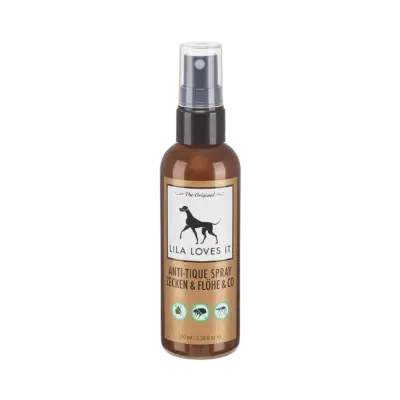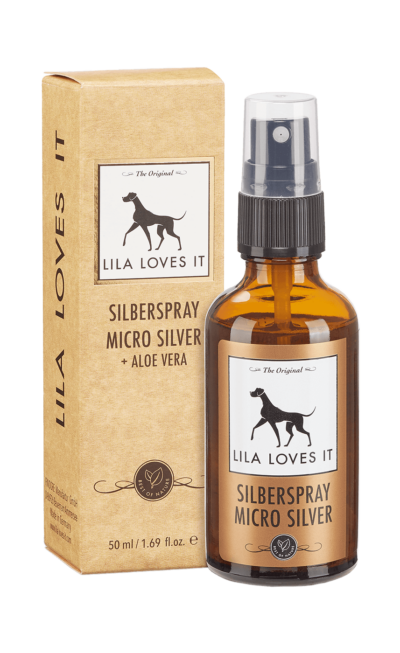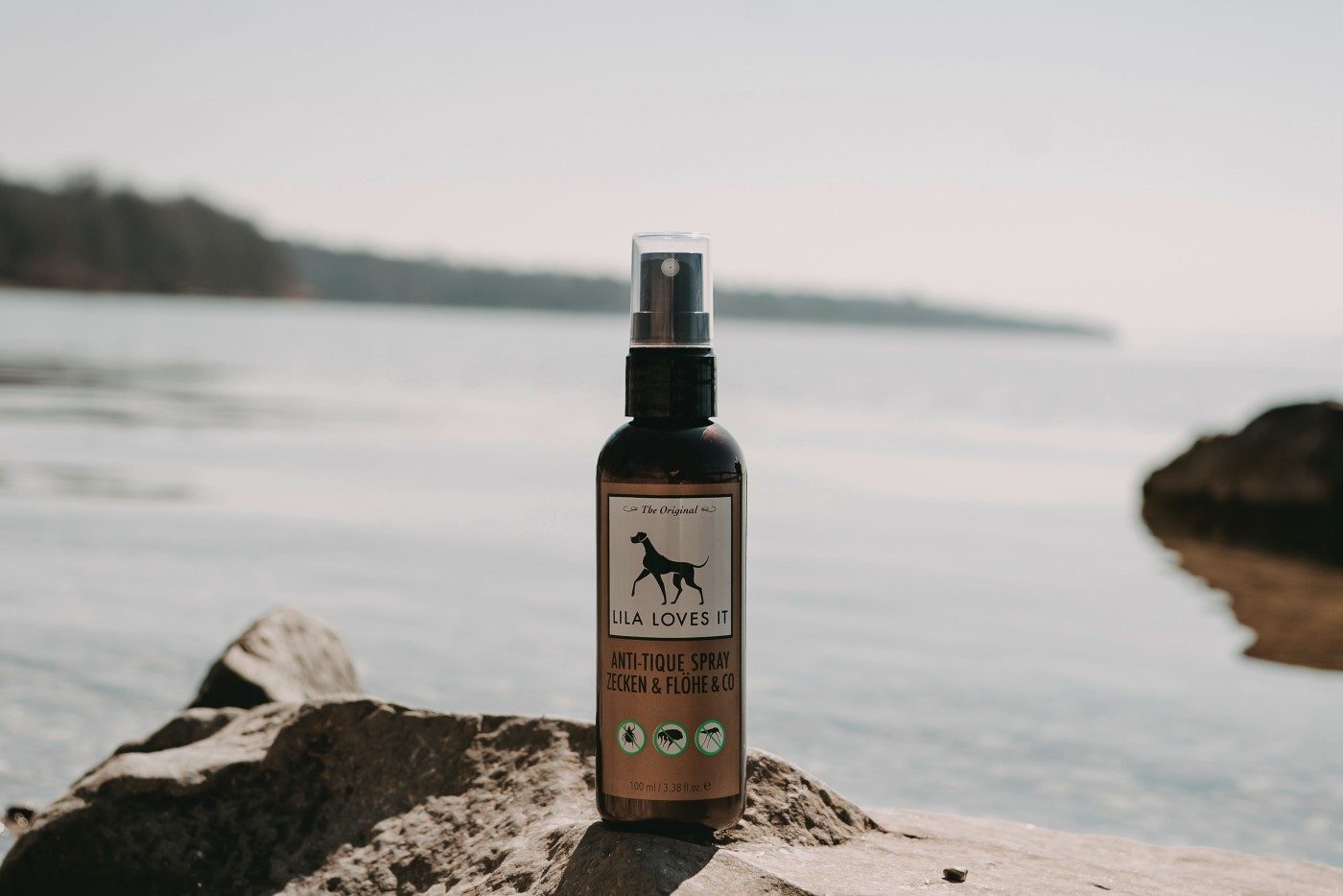Every year the tick season starts earlier. As soon as spring announces itself, the pests awaken from hibernation. To minimise the risk of tick bites, it is recommended to check your dog regularly for ticks, especially after walks in forest and meadow regions. Prophylactic treatment with a tick repellent such as our ANTI-TIQUE SPRAY can also be useful, especially in regions with a high tick population.What is the best way to protect my dog from ticks?
The best way to protect your dog is with a prophylactic tick repellent such as our ANTI-TIQUE SPRAY. How? Quite simply with a pump shot on the chest, hind legs and back and gladly on yourself - not that the tick then bites the dog owner.
Our spray can also be used for puppies and humans alike, is purely herbal and very well tolerated. If your dog is looking for a special treat in the cool water and is an enthusiastic swimmer, we recommend spraying him again afterwards. The active ingredients simply dissolve in the water.
The ANTI-TIQUE SPRAY has an effect of 4-5 hours. After that, you have to reapply it because the active ingredients then "evaporate". But don't worry, our practical bottle with 100 ml fits well in every gas pocket.How can I tell if my dog has been bitten by a tick?
Our vet strongly recommends checking the coat after every stay in the countryside. As a rule, the ticks "walk" on the coat for a while until they bite. She also has a little trick for you: simply roll an adhesive lint roller over the coat and be happy when one of the ticks sticks to the adhesive foil.How do I remove a tick from my dog?
Our vet has written a detailed article (in german) about this : "Tick bite in dogs: How to behave properly." The article summarises how to behave in case of tick bites, how to remove ticks correctly and how to prevent tick bites.What diseases can dogs get from tick bites?
Ticks are not only a nuisance for dogs, they can also be really dangerous. Unfortunately, ticks can transmit a whole range of bacteria, viruses and protozoa and thus trigger dangerous diseases in the infested animal or in humans. Diseases transmitted by ticks are, for example, borreliosis, anaplasmosis, babesiosis, TBE, ehrlichiosis and hepatozoonosis.What side effects can occur with tick repellents?
Conventional tick repellents can cause side effects such as skin irritation, itching, hair loss, nausea, vomiting, diarrhoea, breathing difficulties and neurological symptoms such as tremors, convulsions and coordination problems. It is important to follow the manufacturer's instructions carefully when using tick repellent and never give your dog more than the recommended amount. Our Anti-Tique Spray is generally very well tolerated and we are not aware of any side effects to date. However, we recommend that you test the tolerance of any product applied to the skin on a small area in advance. If you notice any other side effects, you should contact your vet and discontinue the product if necessary.









